Student Success & The Northern Experience
Gain the skills and knowledge to assist members of a veterinary team. Through our one-year Veterinary Assistant certificate program, you’ll learn to prepare medication, counsel clients on patient care, and assist with lab work and surgery preparation under the direction of a veterinary or designate.
This program prepares you for a fulfilling career in animal care and may be completed concurrently with our Animal Grooming program.
Does this program sound like a good fit for you?
Connect with us to learn more.
Course Information
Semester 1
This course will educate students on how to handle and care for various companion animals, both large and small. This course will also prepare the student to work proficiently in a grooming facility. The student will learn and practise proper bathing procedures. The student will also be able to recognize and care for skin and coat conditions and will learn proper ear and nail care. They will also learn how to communicate effectively with their clients.
The course is designed to help students gain insights and skills to promote personal and professional development. Students will develop an understanding of how they manage their lives and incorporate skills to maximize their strengths and reduce the impact of less effective techniques. Students will learn about resources that are available to them and the intelligence of accessing additional support when needed. The content of this course provides students with the opportunity to lay a foundation for lifelong learning; learn to communicate effectively, build and value productive and satisfying diverse relationships and prepare for the challenges and rewards that make life meaningful.
Animal care providers often handle animals with behaviour problems. They must know what advice to give and when to refer the problem to the veterinarian. The technician/assistant/groomer must also know the procedure involved in referral to a behavioural specialist and/or an obedience trainer.
This is the first of two courses designed to teach the student the basics of anatomy and physiology. The levels of organization within the body will be discussed. The function of body organs and systems will be described and related to the common diseases the student may encounter in a clinical environment. Students will learn appropriate directional and anatomical terminology as well as terminology related to common medical conditions. This course focuses on the structure and function of the dog and cat.
This course deals with animal husbandry. The student will learn to assist with restraint of companion animals. Emergency Triage will be covered, as well as patient admittance into a Veterinary hospital and discharge. Pharmacology will be covered in this course. The assistant must be proficient in recognizing legal issues involving drugs in the workplace, recognize general types and groups of drugs and describe prescription label requirements. Labelling, packaging and dispensing of prescription medication will also be covered. Biological therapeutic agents will be discussed.
This one semester course is designed for the Animal Grooming, Veterinary Assistant, Veterinary Technician and the Veterinary Technology programs. The course is designed to look at their role in the daily operation of a veterinary practice. The course will include sections on customer service, telephone skills, and welcoming skills, confrontation and conflict resolution. The course will assist students in becoming more comfortable assisting clients through the grief cycle. There will be a component on Client Communication utilizing both oral and written communication in the veterinary practice. This course will have a self-directed on line grammar component. This course will enable the students to practice the skills required for effective work in client relations.
This course will deal with the general needs of large animal veterinary practice. The veterinary assistant will develop an appreciation for livestock medical and surgical techniques, and commonly encountered conditions. The student will acquire general understanding of clinical procedures, bandaging, reproduction, biosecurity, animal handling and restraint. Proper sample collection and animal identification for official certificates will be reviewed. The student will also become familiar with the general clinical examination of equine and ruminant species. Particular emphasis will be placed on preparing the student for interaction with large animal clients.
This course will outline the fundamentals of animal restraint and the factors that influence behaviour. Handling, restraining, feeding, and analyzing of cats, dogs and lab animals will be emphasized. Proper forms of animal approach, handling, restraint, and release will be demonstrated and practiced by the student. All classes will start with a lecture and/or demonstration on how to perform the procedure, followed by a lab of applying that knowledge.
This course will commence the student’s study of the basic components of the veterinary lab. The veterinary assistant must develop competency in applying safety procedures, practicing aseptic techniques, ensuring quality control and preparing samples for analysis when assisting other members of the veterinary team.
This course will enable the students to become familiar with specific employment requirements for their field of interest. The students will also have the opportunity to learn how to self-market for job finding, as well as how to maximize their potential for success in an interview situation. This course is designed to assist students in obtaining employment. Students will also learn to prepare themselves for varied Fieldwork Placements. This semester will concentrate on incorporating skills from the Client Relations Course to further develop their interpersonal communication skills through their ability to prepare for an employment interview. The course will also discuss work ethics and the role they play in long term employ ability.
This course will prepare the student to function in a veterinary environment. Students will provide care for the colony animals housed at Northern College. The use of Standard Operating Procedures will assist the student. The Veterinary Science facility simulates the professional environment and enables the students to learn the skills necessary to function as a productive team member.
Semester 2
This general education course will provide students with an introduction to Canadian Indigenous Nations’ history, sovereignty, land titles, cultural history and current critical issues. Topics addressed include the content of Indigenous rights, economic and social development, community and political processes, and business law and policies, justice & social services. Canadian Indigenous History and Relations is a general education course that has been incorporated into all programs at Northern College.
42 Hours
The course will cover the fundamental concepts of shelter medicine, including the importance of the 5 Freedoms, proper training of volunteers and the creation, following and revision of standard operating procedures. The course discusses a number of very important concepts that will help to maintain the physical and mental well-being of the animals within a shelter’s environment including: sanitation procedures and cleaning rotations, enrichment, daily rounds, an appropriate length of stay and a shelter’s capacity for care, community outreach, trap-neuter release programs, and public education. At the successful completion of this course the student will have an introductory understanding of animal shelter environments.
This course covers the basic concepts of nutrition and provides students with sufficient understanding to advise clients on the nutritional needs of large and small animals at various life stages. While the major focus of the course if on feeding the healthy animal, the dietary needs of dogs and cats with specific organ diseases are also covered. Students are introduced to common dietary toxicities and deficiencies encountered in small animal companion medicine
This course will outline the fundamentals of basic animal procedures that may occur in a small animal clinic setting. Handling and restraining will be emphasized during basic procedures such as; bandaging, emergency triage, proper sample collection and handling, equipment uses during emergency situations. All classes will start with a lecture and/or demonstration on how to perform the procedure, followed by a lab of applying that knowledge.
This course will encompass all aspects of grooming procedures for the companion animal. It will prepare the student to recognise and care for various skin disorders. All areas of concern will be discussed and practised in providing a safe environment for the groomer, workplace and the companion animal.
This course orients veterinary technicians/assistant to practice management with emphasis on marketing, communications, business operations, inventory control, scheduling, standard operating procedures, maintenance and retrieval of records, and occupational health and safety issues. By understanding the legalities that impact on veterinary practice, while at the same time appreciating the need to conserve costs and increase practice income, the graduating technician will be better prepared to contribute to the effective operation of the practice. The student will be expected to apply communication skills developed in the Client Relations course.
This is the second of two courses designed to teach the student the basics of anatomy and physiology. The levels of organization within the body will be discussed. The function of body organs and systems will be described and related to the common diseases the student may encounter in a clinical setting. Students will learn appropriate directional and anatomical terminology as well as terminology related to common medical conditions. This course focuses on the structure and function of the canine and feline species.
The purpose of this course is to develop the skills necessary to effectively use computer programs specific to the veterinary environment. This course will give the student practical skills on specialized veterinary software packages such as AVImark and Impromed. Students will be able to set up files for new clients and/or new patients. They will know how to bill for services and products, print appropriate certificates as well as prescription labels. Accepting payments will be practiced.
This course will prepare the student to function in a veterinary environment. Students will provide care for the colony animals housed at Northern College. The use of Standard Operating Procedures will assist the student. The Veterinary Science facility simulates the professional environment and enables the students to learn the skills necessary to function as a productive team member.
Graduate & Career Information
Important Information for Graduates
A limited number of spots are available in our Veterinary Technician/Technology program for graduates of Northern College’s Veterinary Assistant or Animal Grooming programs.
Graduates of those programs that wish to apply to the Veterinary Technician program must have – in addition to the usual requirements for direct entry from high school – a 75 percent minimum average (3.0 GPA) upon graduation from Veterinary Assistant or Animal Grooming programs. Applicants will be assessed according to highest academic achievement in their program.
Please contact the Program Assistant at 705-672-3376 ext. 8854 or at vetsciences@northern.on.ca for more information.
Our Veterinary Technician program is accredited by:
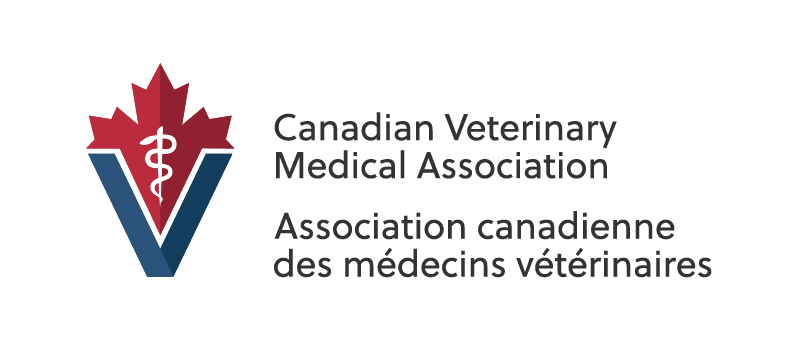
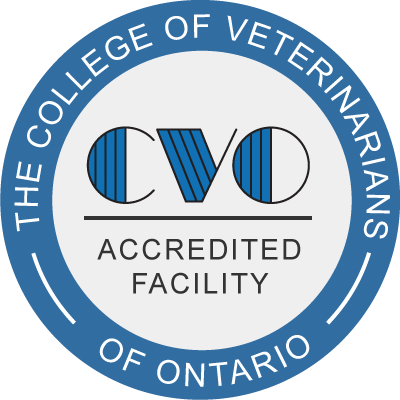
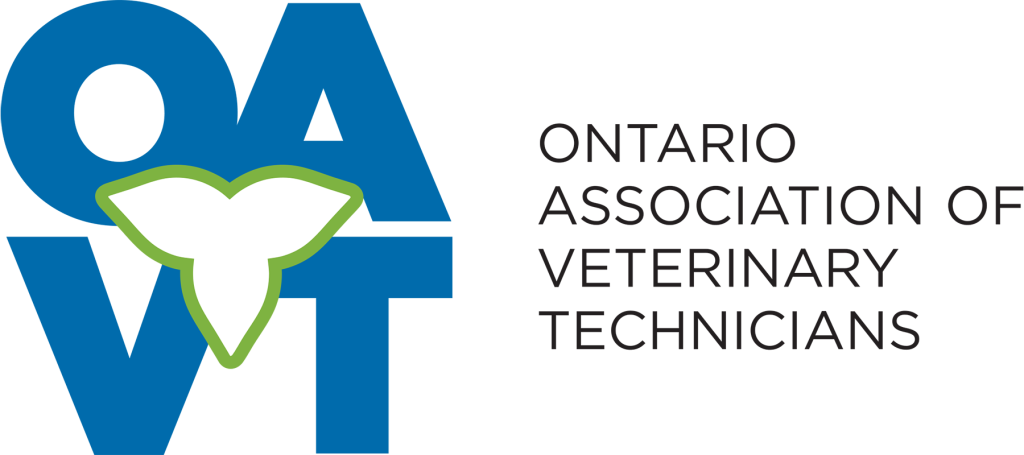
Articulation Agreements
A number of articulation agreements have been negotiated with universities and other institutions across Canada, North America and internationally. These agreements are assessed, revised and updated on a regular basis. Please contact the program coordinator for specific details if you are interested in pursuing such an option.
Career Opportunities
Graduates may find employment in veterinary practices, federal and provincial institutions, universities, humane societies, pet food outlets, veterinary companies, grooming facilities and kennels.
Admissions Information & Requirements
Program Specific Requirements
Veterinary Assistant Requirements [PDF, 516 KB]
Admission Requirements
- Ontario Secondary School Diploma (OSSD)
- Grade 12 English (C, U)
- Grade 11 Biology (C, U)
Or equivalent
Academic prerequisites for this program may be obtained free of charge through Academic Upgrading.
Applicants who do not have a high school diploma or equivalent and will have reached the age of 19 years on or before the start of the program must undergo academic testing and may be required to complete Prior Learning Assessment & Recognition (PLAR) process to demonstrate equivalency of admission requirements prior to admission into a program.
For more details, please contact the Admissions Office at 705-235-7222 or admissions@northern.on.ca.
Additional Admissions Requirements
- Proficiency in word processing recommended.
- Rabies vaccine series and titre prior to start of program (at student’s expense).
- Some experience in a veterinary clinic or hospital is considered an asset.
Additional Requirements for International Students
In addition to the admission requirements, international students must have proof of English Proficiency and meet the requirements below.
1. Proof of Senior High School Diploma/Certificate.
2. English Proficiency (we will require one of the following):
- IELTS Academic International English Language Testing System
a minimum overall score of 6.0 must be achieved with no individual band score under 6.0; however, we will accept one band at 5.5. - TOEFL (Test of English as a Foreign Language) – Internet Based Test (iBT) overall minimum score of 79.
- PTE (Pearson Test of English) Academic – Graduate Diploma: 58+.
3. CO-OP Work Permit is mandatory for this program to participate in unpaid program placements.
If your country of citizenship has English as its official language, we may accept alternate proof of English Proficiency.
All educational documents must be submitted in English and will be dependent on the country of citizenship.
For more information, please contact admissions@northern.on.ca.
Tuition, Fees & Payments
| Student | Year | Campus | Program Code | Tuition | Ancillary Fees | Total Fees |
|---|---|---|---|---|---|---|
| StudentDomestic | Year1 | CampusHaileybury - HL | Program CodeH057 | Tuition$2,720.56 | Ancillary Fees$962.50 | Total$3,683.06 |
| StudentInternational | Year1 | CampusHaileybury - HL | Program CodeH057 | Tuition$14,382.00 | Ancillary Fees$1,485.58 | Total$15,867.58 |
Find Your True North.
At Northern College, you’re a part of a community.
From your teachers to support staff and administrators, we are all here to help you get an education and make some lasting connections along the way.
Your success is incredibly important to you, so we provide student supports to help you achieve your goals. From study assistance and accessibility services to mental health supports and financial aid, we’ve got you covered.
Each of Northern’s campuses boasts exercise facilities, a gym, cafeteria, study areas and a library – places that you can go to help keep you focused as you work your way through your studies. The communities we call home are incredible places, filled with amazing people and things to do.
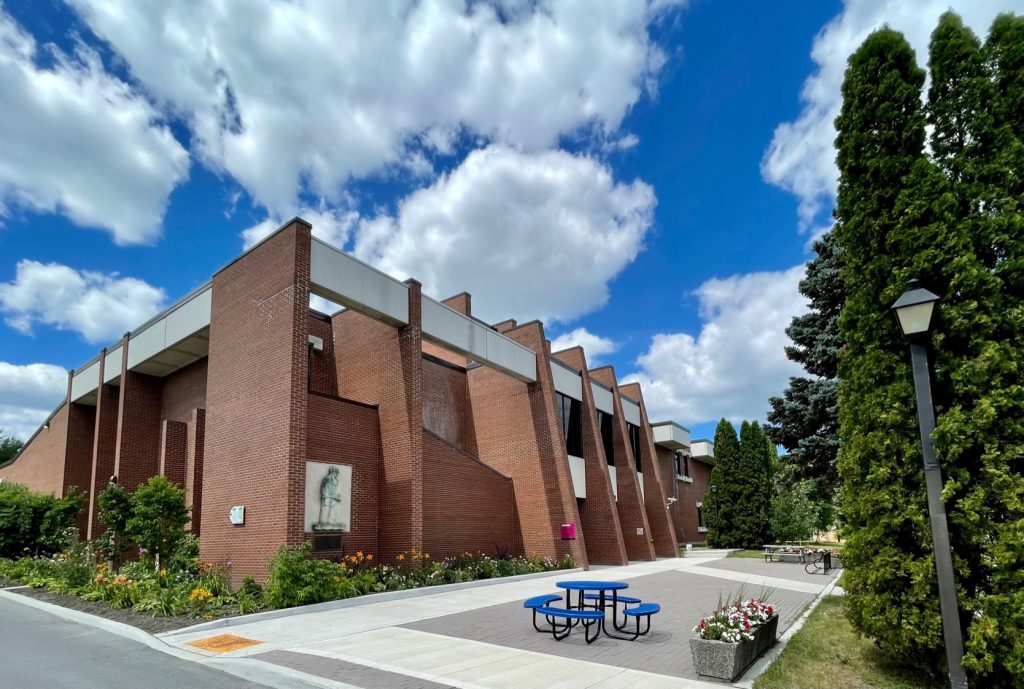
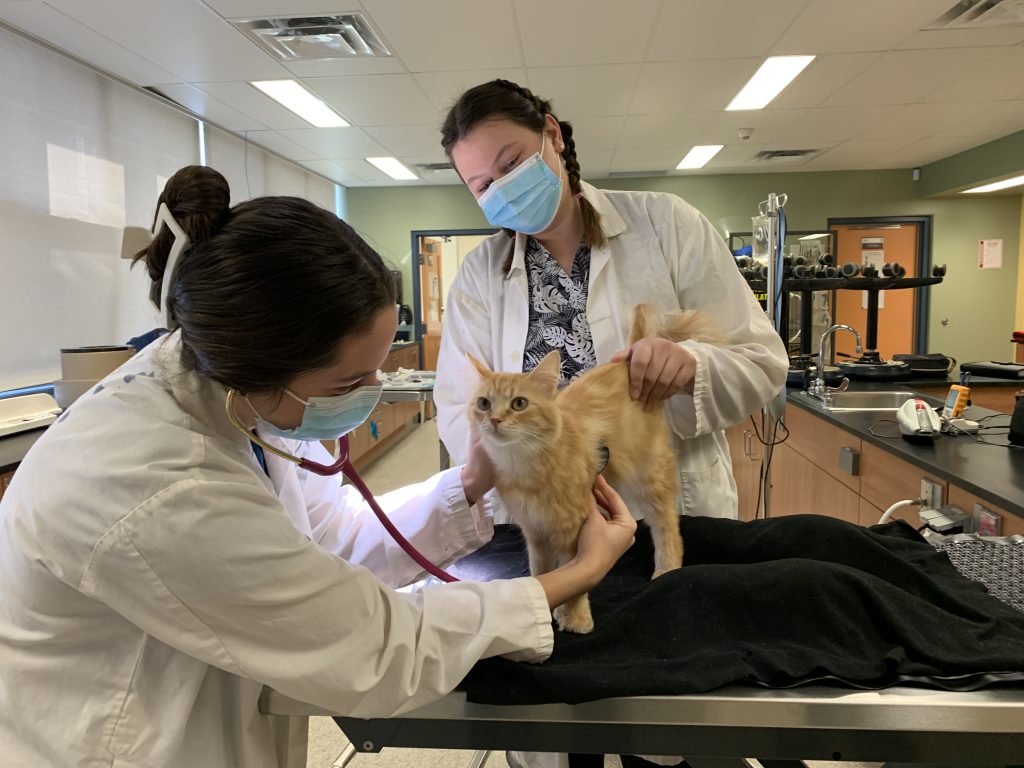
Does Northern College sound like a good fit for you?
Here’s how to take your first steps on your new exciting and rewarding career path.
